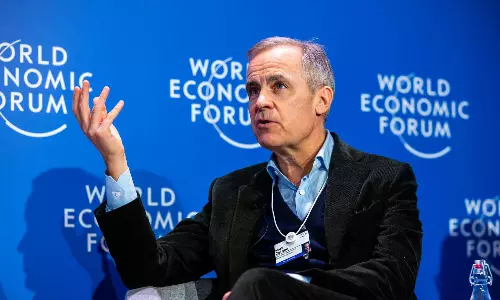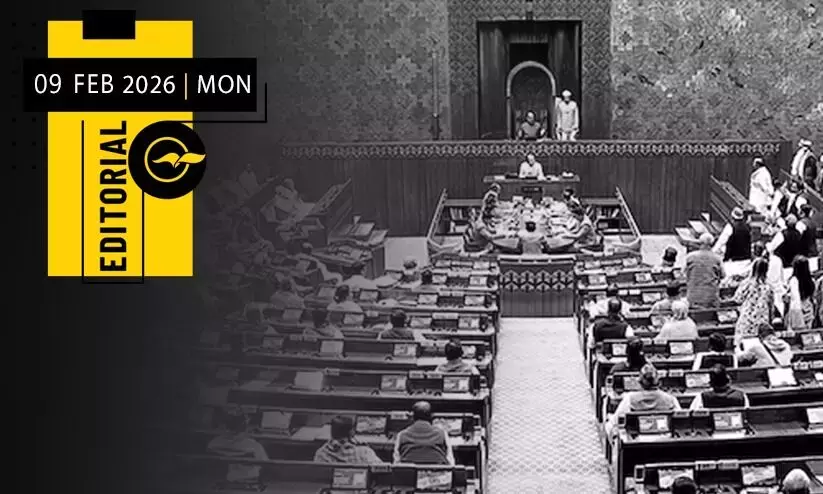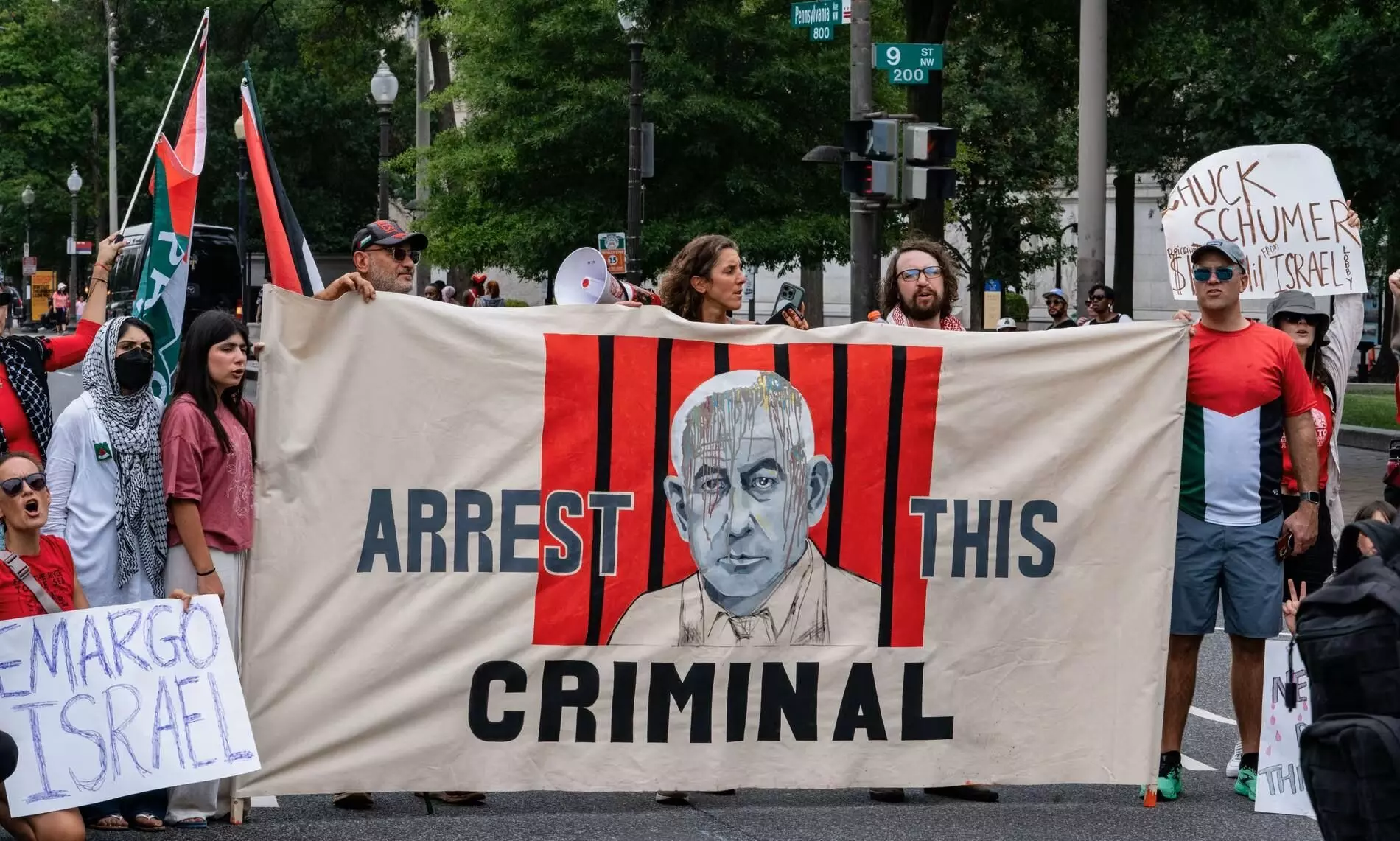
Netanyahu’s lies before US Congress, challenging International Court
text_fieldsIsraeli Prime Minister Benjamin Netanyahu delivered a fiery speech to a joint session of the US Congress, a platform provided by Republican House Speaker Mike Johnson on Wednesday.
The address, laden with combative rhetoric and controversial assertions, comes at a tense juncture in US politics and amid Israel's prolonged military campaign in Gaza, which has now stretched nearly ten months.
Israeli war in Gaza has claimed over 39,000 lives, with thousands more potentially trapped beneath debris. Despite the high toll, Netanyahu defended Israel’s actions, challenging accusations from the International Criminal Court (ICC) and other international bodies.
Netanyahu’s speech was met with opposition outside the Capitol. Thousands of demonstrators, representing a spectrum of left-wing groups including Jewish organizations, converged on Washington, D.C., to voice their dissent. Protesters chanted slogans such as “Shut it down” and “Bibi, Bibi, we’re not done!” as they marched towards the Capitol. Police, bolstered by reinforcements from New York, deployed pepper spray to manage the crowds, who had blocked intersections and breached police lines.
The backdrop to Netanyahu’s speech included a dramatic withdrawal of President Joe Biden from the presidential race and a recent failed assassination attempt on Republican nominee Donald Trump, further intensifying the political climate.
Despite these distractions, Netanyahu’s visit and speech remained a focal point of controversy, even among some pro-Israel Democrats who view his aggressive military strategies with increasing scepticism.
Netanyahu’s address included several key assertions, particularly regarding the humanitarian situation in Gaza and Israel’s military tactics. He denied claims by the ICC that Israel was deliberately starving the population of Gaza. Netanyahu cited that Israel had facilitated the entry of over 40,000 aid trucks, delivering significant amounts of food to the besieged territory.
However, data from the UN and reports from relief organizations contradict this narrative, indicating that only 28,018 aid trucks have entered Gaza since the conflict began, with access severely restricted after Israeli forces stormed the Rafah crossing in May.
The UN and various humanitarian groups have accused Israel of obstructing aid efforts, imposing inconsistent restrictions that hamper the delivery of essential supplies. Sally Abi Khalil, the Middle East and North Africa director for Oxfam criticized Israeli authorities for actively hindering international aid efforts. Despite some improvements in the supply of commodities to northern Gaza, the region remains at high risk of famine, with a majority of the population facing severe food insecurity.
Netanyahu also defended Israel’s military actions, refuting accusations that the Israel Defense Forces (IDF) were deliberately targeting civilians. He highlighted measures such as dropping flyers, sending text messages, and making phone calls to warn residents of impending attacks. However, these actions often fall short of preventing civilian casualties. The UN Office for the Coordination of Humanitarian Affairs (OCHA) reported that evacuation orders issued by the IDF have caused widespread confusion and failed to provide safe passage, leading to repeated displacements and increased danger for civilians.
The situation is further complicated by the designation of large portions of Gaza as no-go zones or evacuation areas, leaving residents with few safe options. According to the UN agency for Palestinian refugees (UNRWA), more than 80% of Gaza’s land area has been affected by such orders, exacerbating the humanitarian crisis.
Addressing the issue of negotiations with Hamas, Netanyahu maintained a hardline stance, insisting that the war would end only if Hamas surrendered, disarmed, and released all hostages. He praised a recent Israeli military operation that freed four hostages but resulted in the deaths of 274 Palestinians. Currently, an estimated 114 hostages remain in Gaza, including an undisclosed number of deceased captives.
Despite Netanyahu’s calls for “total victory,” public sentiment in Israel appears to favour a different approach. A poll conducted by Channel 12 News revealed that two-thirds of Israelis prioritize the return of hostages over continued military action, expressing doubt about the feasibility of Netanyahu’s goals.
Critics, including former Israeli negotiator Gershon Baskin, have urged Netanyahu to pursue a ceasefire and negotiate a deal to end the bloodshed and secure the release of remaining hostages.























